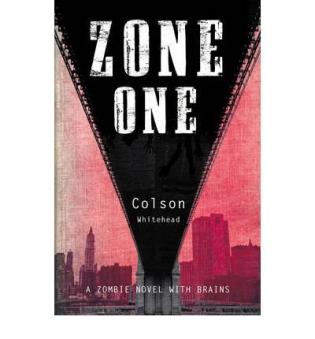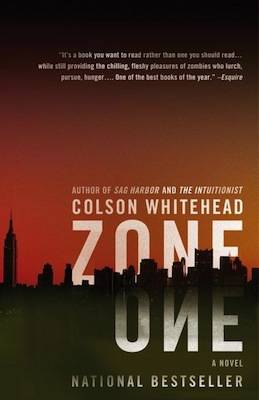

Yet this very ordinariness could be the source of their contemporary appeal: the zombie may represent our fear of our fellow man in the aggregate.

Clumsy and slow-moving, they are interchangeable creatures of pure appetite. Zombies? Not exactly the most exciting monsters around, are they? They lack the glamour and philosophical bent of vampires, the exotic charm of aliens, even the athleticism of werewolves. And now Colson Whitehead, the author of rarefied novels like The Intuitionist and John Henry Days, tries his hand at the genre with the novel Zone One. The biggest hit on cable is The Walking Dead. In the last ten years, we have had remakes of Night of the Living Dead and Dawn of the Dead, 28 Days Later and its sequel, 28 Weeks Later, zombie comedies like Shaun of the Dead and Zombieland, even erotic zombie movies. In the new millennium, teenagers may be vampire-crazy, but the monster of choice seems to be the zombie. In the late Sixties and early Seventies, at a time when it seemed like our society was abandoning traditional religion and losing its moral compass, it was the devil (Rosemary’s Baby, The Exorcist, The Omen).


In the Fifties , when our two biggest fears were nuclear annihilation and Communist takeover there were body snatchers and a series of monsters created by atomic radiation. In the Late Victorian era, an age of sexual repression and widespread, often fatal sexual diseases, it was the vampire and the werewolf. While walking, Mark Spitz and Gary discuss the kill fields that Buffalo reported recently: parking lots, malls, and stadiums full of.Sign up for our newsletter to get submission announcements and stay on top of our best work.Įvery age seems to get the monsters that reflect its deepest anxieties. Omega Unit woke on Saturday morning and headed to their next sweeper assignment, a residential complex that would take them several days to complete. These dreams confused Mark Spitz, but he was too busy to analyze them. The dead were operative, surrounding him and able to talk and comprehend things, but they were dead, with gashes in their necks, bloodless. But now, after the plague, everyone in his dreams were dead. In the dreamworld, Mark Spitz would be running late for an important meeting, or receiving a performance review, or taking a test. In these dreams, he was back in his old life, where institutional structures reigned supreme, and chaos was contained. Mark Spitz’s dreams recently resembled a “classic anxiety paradigm” (107).


 0 kommentar(er)
0 kommentar(er)
